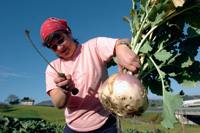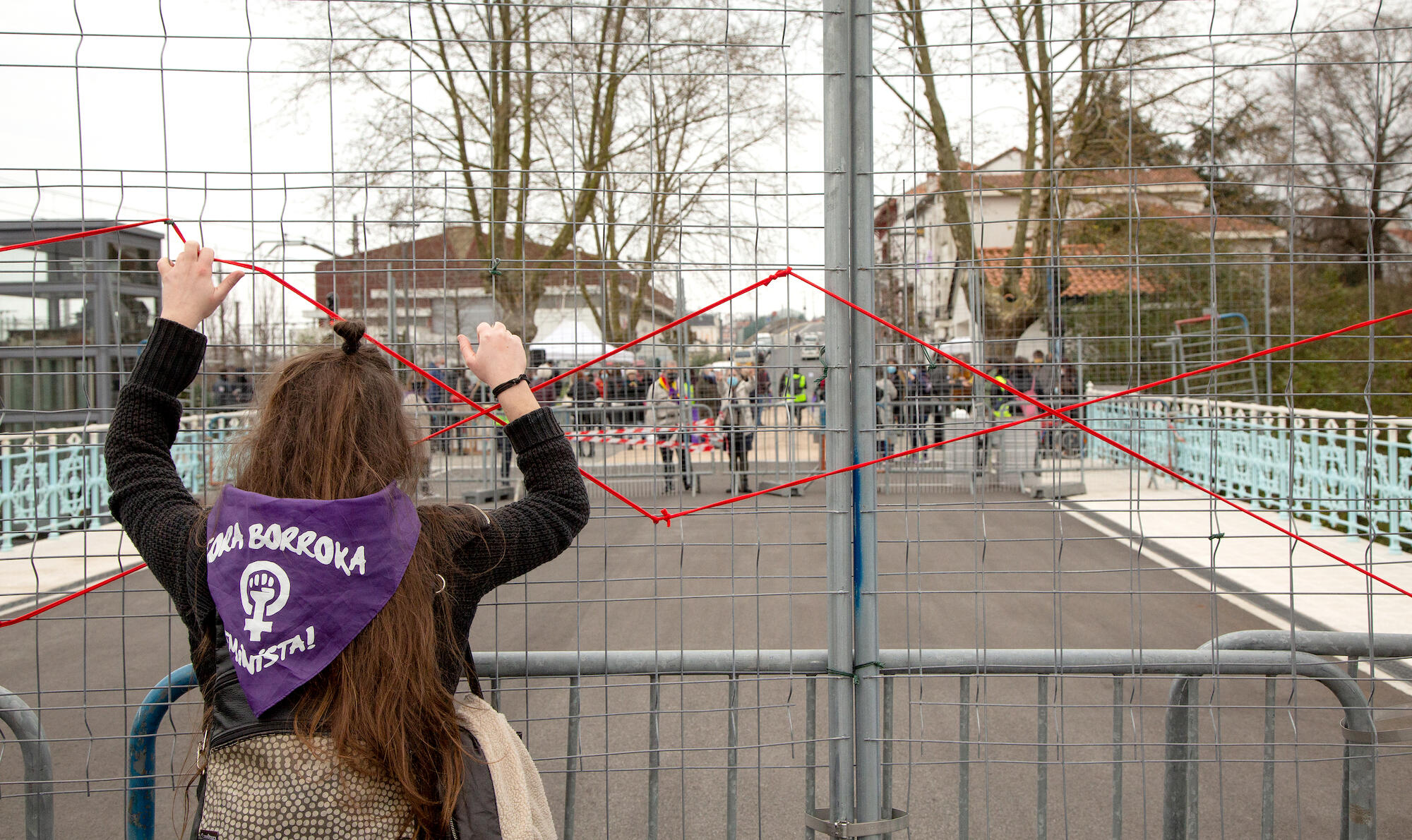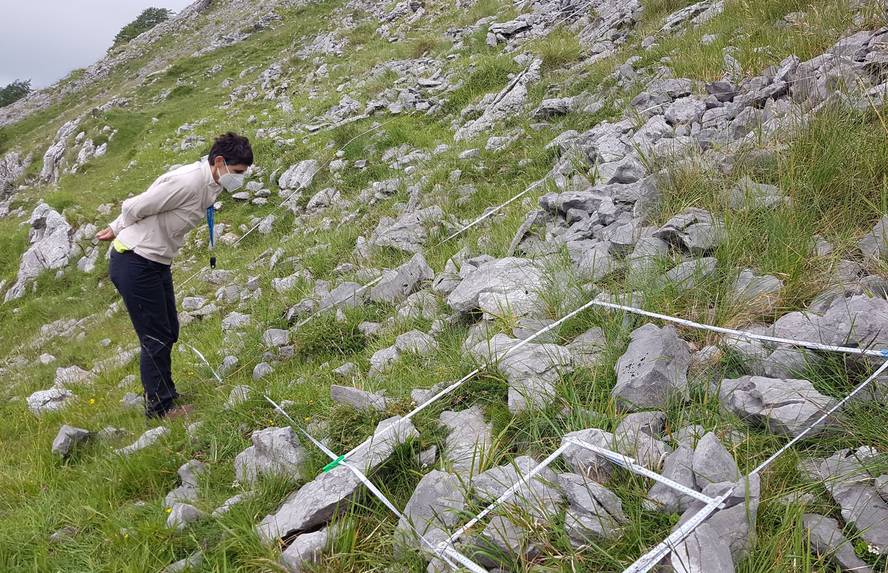The need to produce food at home
- The effects of the increase in the price of cereals on the world market are noticeable. This is due to the policies of agricultural liberalization imposed by the multinationals and their neoliberal governments, which have destroyed the ability of countries to feed themselves.

This is how the international organization Via Campesina describes the current situation. The organization brings together various grassroots organizations and associations from all over the world, including the EHNE (Union of Farmers and Ranchers of the Basque Country) and the Basque NGO PTM-Mundubat. The team is not only describing the crisis, but also analyzing it and, above all, looking for formulas to respond to it. And the answer lies in rebuilding national food economies and regulating international markets. According to Via Campesina, farmers and small farmers are the main food producers and the only ones with the potential to feed the world.
The effect of neoliberal policies
Some analysts have attributed the crisis only to agricultural fuels, an increase in global demand, and global warming. But it is also a consequence of the destructive neoliberal policies that have been in place for many years. These policies undermined domestic food production and forced farmers to produce commercial crops for multinational companies and buy their food from multinationals on the global market. Over the past 30 years, countries have been forced by the World Bank, the International Monetary Fund and the World Trade Organization to reduce investments to boost food production and support for smallholder farmers. And yet, small producers are essential in food production around the world.
The capacity of countries to feed themselves has been destroyed by neoliberal policies, as well as by the boom in agricultural fuels, which is one of the reasons for the rise in food prices. Multinationals and the world’s economic powers, the United States of America and the European Union are rapidly developing their agricultural fuel production. Therefore, in a very short time, large areas of land that were destined for food production are used for the production of agricultural fuels. So much of the U.S. artasoros has “disappeared,” since the lands were purchased to produce ethanol. Several other agricultural products will have the same future for the benefit of agricultural fuels.
The solution to the crisis
To get out of the current crisis, according to Via Campesina, countries should prioritize in their budgets the support of the poorest consumers so that they are able to access enough food, as well as the internal production of food to reduce their dependence on the world market. They support the development of other production systems, which must integrate not only those of the main crops, but also local food. Small farmers’ families have the potential to produce a balanced diet and a variety of foods that guarantee certain market surpluses.
They also call for stabilisation of prices in the internal market at a level that is reasonable for farmers and consumers. In the case of farmers, so that they can obtain prices that cover production costs and guarantee a decent income; and in the case of consumers, to protect them from high prices. To do this, they want to promote direct sales between producers and consumers.
From an international point of view, it is necessary to take measures to stabilise prices on the markets. Countries need the freedom to control imports in order to protect domestic food production. For Via Campesina, the production of agricultural fuels is unacceptable and must be stopped, as it competes with food production. As a first step, they call for an immediate moratorium on agricultural fuels.
Munduko zereal erreserbak 21 milioi tona gutxiago izango ditu, 405 milioi tona 2008ko amaieran. Urte askotan erreserbek behera egin badute ere orain daude azken 25 urteetako mailarik baxuenean.
Multinazionalek eta analista konbentzionalek lurra nekazaritza erregaietarako gero eta gehiago erabiliko dela iragarri dute –artoaz gain, palma-olioa, koltza-hazia, azukre-kanabera, eta abar–. Asian gora egiten ari den gizarte taldea haragia erosten hasiko dela uste dute eta, horren eraginez, zerealen eskaerak gora egingo duela. Klimaren ondorio ezkorrak ere aurreikusten dituzte elikagaien ekoizpenean: lehorte eta uholde larriak. Bitartean, Via Campesinak ondorioztatu du multinazionalak nekazaritza lurren azalera izugarriak eskuratzen ari direla hirien inguruan, espekulatzeko helburuarekin eta nekazariak bortxaz egotziz. Indian, 700dik gora “Esparru Ekonomiko Berri” ezarri eta nekazariak beren lurretatik bota dituzte.
A few weeks ago, the President of the European Union, Ursula von der Leyen, reported on the need for military spending of eight hundred billion euros. This expenditure is said to be in response to a military threat to which Europe is exposed, and it has been confirmed that there... [+]
Salvador Puig Antich frankismoaren kontrako militantea izan zen. Askapen Mugimendu Iberikoko kidea, 1973ko irailaren 25ean atxilotu zuten. Gerra-kontseilua egin zioten, eta garrotez exekutatu zuten handik sei hilabetera, 1974ko martxoaren 2an. Aurtengo otsailean baliogabetu du... [+]
The Department of Education reported on diagnostic evaluations in February: He talked about the mid-stage of 2023 and the end-stage of 2024. Since the disastrous results would show that we have a structural problem, the department decided to comply with the procedure (publish... [+]
I have to clean two different places at the same time. Not an ordinary cleanliness, but something that forces us to explore in a different way the landscapes that surround us in our day to day, which also makes us move the structures within ourselves along with the external... [+]
Totally dedicated to the tendency of dispersion that we carry in the genes that I was walking down the street, in some useless abstraction that distracts you from the physical and curricular paths. A girl who hasn't turned thirty before. Something fell out of his pocket. The girl... [+]
Last week, during the blackout, seeing ourselves vulnerable, we began to investigate many people in order to understand what happened: how does the infrastructure that transports electricity work? Why is it getting old? I am fascinated by the physical phenomenon of electricity... [+]












.jpg)










